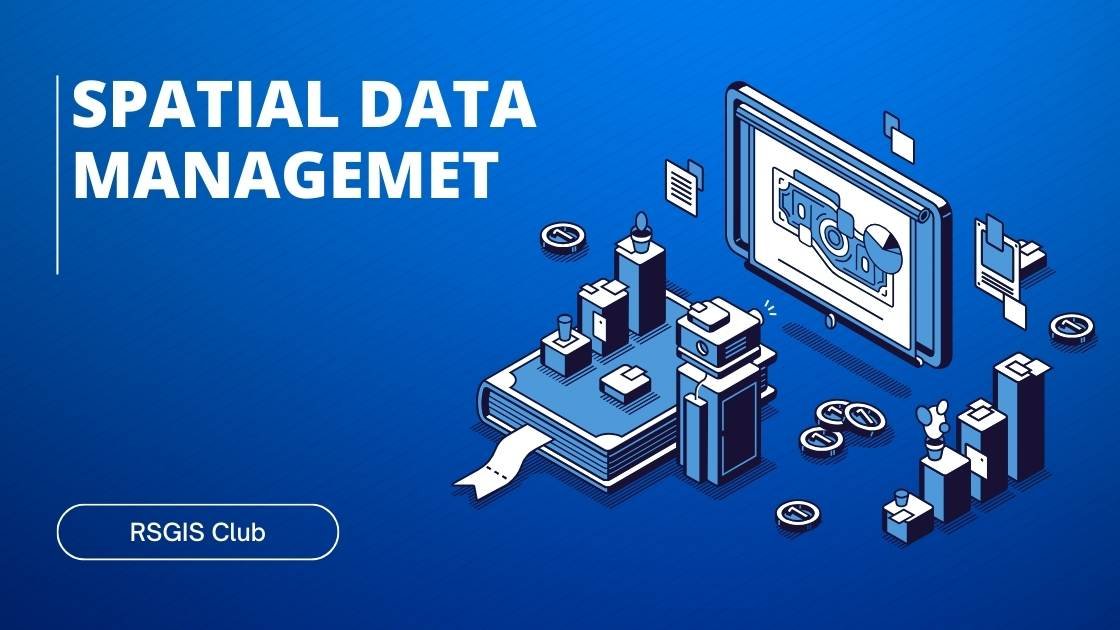Course Overview
Spatial data constitute pivotal elements for the realm of spatial analysis. Within myriad GIS undertakings, your quest primarily revolves around pinpointing spatial data germane to your project prerequisites and effectually administering them. The absence of fittingly tailored and adeptly governed spatial data represents a formidable impediment, hindering a GIS system from unleashing its full potential. Within the ambit of this course, we shall embark on an odyssey through the intricate terrain of spatial data models, meticulously scrutinizing a plethora of strategies to proficiently unearth and oversee spatial data. Over the duration of the semester, our expedition shall encompass a panoply of subjects that occupy the epicenter of spatial data governance.
A paramount facet that will command our attention pertains to the enigmatic domain of geospatial big data, where we shall dissect its attributes, confront its vexing challenges, and contemplate its prospective applications. Additionally, we shall embark on an exploration of the formidable Google Earth Engine, an omnipotent cloud-based platform tailored for the grand-scale scrutiny of geospatial data. Another seminal cornerstone of this academic voyage manifests in the guise of structured query language (SQL), a ubiquitous tool revered for its prowess in the arena of spatial data administration and manipulation. Our mission shall be to instill in you the finesse required to adroitly harness SQL’s capabilities, enabling you to deftly query, dissect, and manipulate spatial databases.
For any class-related communication, please direct your inquiries to: ut_geog414@live.utk.edu
Course Communications
Should you find yourself in need of inquiries or reservations, kindly dispatch an email in my direction. Expect a prompt reply within the realm of a solitary business rotation, equivalent to a span of 24 hours, save for the consecrated days of rest. As for queries associated with our educational odyssey, excluding those of an intimate and classified disposition, they ought to be dispatched to the collective electronic missive repository bearing the nomenclature ut_geog414@live.utk.edu. Any correspondences of a personal or confidential nature, dispatched to the pedagogue, are enjoined to bear the rubric “GEOG-414” within the electronic missive’s subject line.
Textbooks
- Charles Severance. (2016). Python for Everybody: Exploring Data in Python 3. (PDF)
- Qiusheng Wu (2023). Earth Engine and Geemap: Geospatial Data Science with Python. Locate Press. (Publisher website | Book website | GitHub)
- Introduction to PostGIS. https://postgis.net/workshops/postgis-intro
Python for Everybody Earth Engine and Geemap
Course Websites
- Course Website:https://sites.google.com/utk.edu/geog-414
- Syllabus
- Lecture slides
- Lab assignments
- Announcements
- Book Website: https://geog-414.gishub.org
- Answer Keys:https://geog-414.glitch.me
- Canvas: https://utk.instructure.com/
- Submitting lab assignments
- Taking online quizzes or exams
- Checking grades
- Video recordings
- Google Drive:
- Downloading course materials
Time
| Type | Time | Location |
|---|---|---|
| Lectures | Mondays & Wednesdays, 9:10 AM – 10:00 AM | BGB-404 |
| Labs | Fridays, 9:10 AM – 10:00 AM | BGB-404 |
| Office Hours | Mondays & Fridays, 8:00 AM – 9:00 AM or by appointment | BGB-309 |
Instructor
Dr. Qiusheng Wu an Associate Professor in the Department of Geography & Sustainability at the University of Tennessee, Knoxville. He is also an Amazon Visiting Academic and a Google Developer Expert (GDE) for Earth Engine. His research interests include geospatial data science, remote sensing, and environmental modeling. Dr. Wu is particularly interested in utilizing big geospatial data and cloud computing (e.g., Google Earth Engine, Microsoft Planetary Computer, Amazon Web Services) to study environmental change, especially surface water and wetland inundation dynamics. His research has been funded by NASA, USDA, and the Department of Defense. Dr. Wu is an advocate of open science and reproducible research, having developed and published various open-source packages for advanced geospatial analysis and data visualization, such as geemap, leafmap, lidar, and segment-geospatial. Check out his open-source projects at opengeos.

